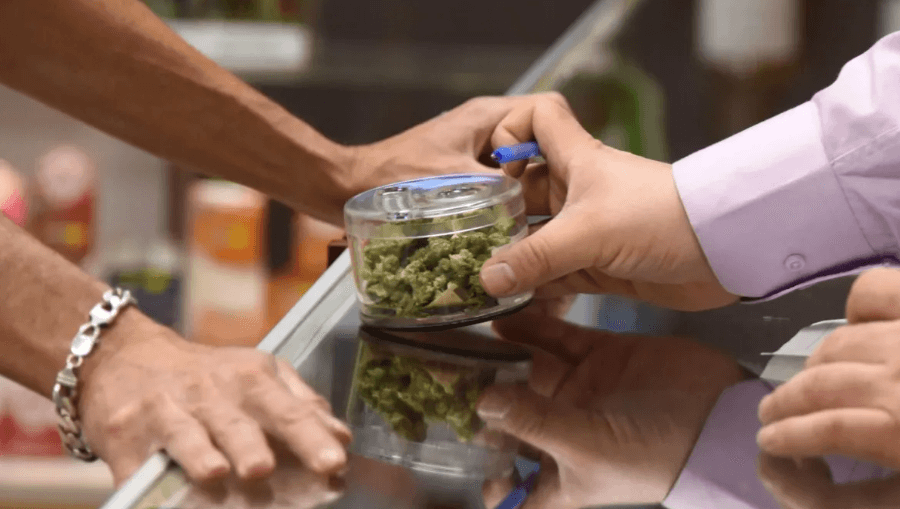📑 Table of Contents
In a recent development from Washington, the Biden administration has announced its intention to reschedule marijuana to Schedule III from its current classification as a Schedule I substance under the Controlled Substances Act (CSA). This shift could potentially open new avenues for business deductions in the marijuana industry, previously hindered by stringent tax restrictions. We need to understand SMS in Marijuana Shift.
Industry Developments
Schedules I or II substances hinder businesses from claiming deductions on federal tax returns. The reform permits marijuana businesses to deduct expenses, marking a significant advancement recognized by industry stakeholders. A Green Theory representative hailed the administration’s decision as “a step in the right direction.”
However, experts urge caution, tempering expectations of a dramatic boon for marijuana businesses. Robert Mikos, LaRoche Family Professor of Law at Vanderbilt University, notes that while rescheduling offers relief, challenges persist. Mikos explained, “The drug will still be regulated under the CSA, posing compliance challenges.”
Moreover, the stigma surrounding cannabis use adds another layer of challenge to marijuana marketing efforts. Despite growing acceptance and legalization in many states, there remains a segment of the population that views cannabis negatively. This stigma can impact consumer perceptions and deter businesses from implementing bold marketing campaigns.
Marijuana businesses must navigate regulations while finding creative ways to promote products. Community engagement, educational events, and strategic partnerships help businesses overcome regulatory hurdles and connect with audiences.
Industry Analysis
Amidst these regulatory changes, the impact on SMS marketing within the marijuana industry remains uncertain. As businesses adapt to the new classification, managing SMS in this evolving legal landscape presents challenges for marketers.
The Biden administration plans to reclassify marijuana from Schedule I to Schedule III under the Controlled Substances Act. This change is expected to reshape the US cannabis industry by altering its financial and operational framework.
Previously, businesses handling substances listed under Schedules I or II faced stringent restrictions, notably the inability to claim deductions or credits on federal tax returns. The new classification to Schedule III enables cannabis businesses to deduct expenses such as marketing, rent, and payroll, which is a major shift toward normalizing these entities’ financial operations.

SMS as a Marketing Solution
SMS (Short Message Service) is gaining traction as a marketing channel for marijuana businesses due to several key factors. Firstly, SMS offers a direct and immediate communication channel with customers, allowing businesses to reach their target audience with timely promotions, announcements, and updates. Unlike traditional advertising channels, SMS messages are delivered directly to customers’ mobile devices, ensuring high visibility and engagement.
Additionally, SMS marketing boasts higher engagement rates than other channels, such as email or social media. Studies have shown that most SMS messages are opened within minutes of receipt, making it an effective tool for delivering time-sensitive offers and promotions. This level of engagement can significantly impact conversion rates and drive sales for marijuana businesses.
Furthermore, SMS marketing provides customers a personal and intimate communication experience, fostering a sense of connection and loyalty to the brand. Businesses can cultivate stronger relationships and encourage repeat purchases by sending personalized messages tailored to customers’ preferences and behaviors.
Regulatory Impact on Marketing
However, the rescheduling is not a panacea. Despite the financial benefits, marijuana businesses will continue to grapple with the stringent regulatory requirements under the Controlled Substances Act. Compliance with these regulations remains a significant challenge and might mitigate the full potential benefits of the rescheduling. Experts like Robert Mikos from Vanderbilt University emphasize that while there are positive impacts, the complexities of compliance with the CSA will continue to pose significant operational challenges for businesses in the industry.
With this rescheduling, SMS marketing is also evolving within the cannabis industry. Under the new scheduling, businesses might now leverage SMS more effectively for promotional campaigns and customer engagement, exploring new strategies within the legal frameworks. However, the exact implications of SMS marketing in the face of these regulatory changes remain to be fully understood, presenting both opportunities and uncertainties for marketing professionals.
Looking forward, the marijuana industry is expected to undergo further transformations as it adjusts to the new regulatory environment. Businesses must stay agile, continually update compliance strategies, and innovate their marketing approaches to capitalize on emerging opportunities. At the same time, they must navigate the complex landscape of federal and state laws, maintaining a keen awareness of both legal and ethical considerations in their operations and customer interactions.
This shift presents a dynamic new chapter for the cannabis industry, promising potential financial relief and operational expansion but also requiring careful navigation of the remaining regulatory hurdles.

Legal Insights
However, the journey doesn’t stop here. Marijuana businesses still face a maze of regulatory challenges that could affect their operations. The article could explore ongoing hurdles such as discrepancies between state and federal laws, banking restrictions, and the persistent stigma surrounding cannabis use.
The economic ramifications of rescheduling marijuana are also significant, potentially influencing job creation and tax revenues. Analyzing the broader economic impact could show how this shift might benefit states where cannabis is a major industry.
Insights from legal experts can provide a deeper understanding of what rescheduling means for ongoing and future litigation, changes in the prosecution of marijuana-related offenses, and essential compliance advice for businesses navigating the murky waters of state and federal regulations.
Finally, incorporating firsthand accounts from those within the cannabis industry—dispensary owners, product manufacturers, and marketers—will offer a personal perspective on how businesses plan to adjust their strategies in response to the rescheduling. These stories highlight real reactions and plans from the community, painting a vivid picture of the sector’s path forward in this new legal landscape.
